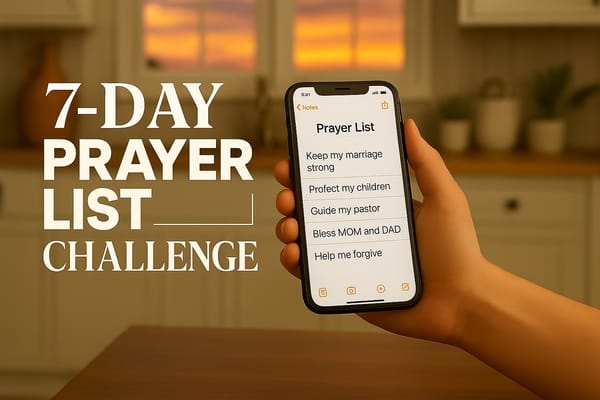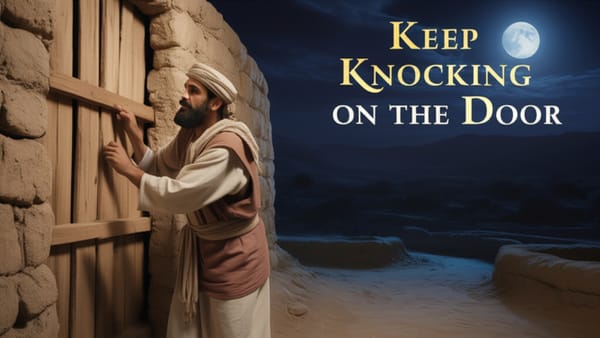The Power of Fasting in the Courts of Heaven

What really happens in the unseen realm when you fast?
What shifts in the heavenly courts—and why does it matter?
Fasting is not a wellness practice. It’s a spiritual cause-and-effect.
In the heavenly dimension, every fast triggers a chain of events that the flesh cannot see:
- Pride is stripped.
- The courtroom of your life grows silent.
- The government of God begins to move.
This isn’t about dieting or surface-level discipline.
It’s about what fasting does before the throne of God for those who belong to Jesus Christ.
When you fast, you step into the courtroom of Heaven.
Scripture and the early Church testify that fasting:
- Functions judicially in the unseen realm
- Breaks yokes, silences the flesh, and shifts verdicts
- Aligns you with the covenant order of God
Fasting is not just personal—it is procedural.
Not just spiritual—it carries legal consequences in the heavenly courts.
Where Does This Legal View of Heaven Come From?
Is this just poetic language?
Or is it an eternal reality that the courts of Heaven recognize?
From Genesis to Revelation, Scripture reveals a structured heavenly courtroom:
- Satan stood before God to accuse Job (Job 1–2).
- The prophet Zechariah saw Joshua the high priest standing before the Angel of the Lord, and Satan at his right hand to accuse him (Zechariah 3:1).
- Paul writes of principalities, powers, rulers, and authorities—a spiritual hierarchy (Ephesians 6:12).
- Jesus is called our Advocate (1 John 2:1).
- The Father is the Judge of all the earth (Genesis 18:25; Hebrews 12:23).
This is a legal framework, not a metaphor.
In this context, Jesus opened a window into the mechanics of that unseen court:
“This kind cannot be driven out by anything but prayer and fasting.”
— Mark 9:29, ESV
Why fasting?
Because fasting changes the jurisdiction.
It alters what is legally possible in the heavenly realm.
It removes the enemy’s claim and opens the way for the authority of Christ to be enforced.
When fasting enters the equation, the courtroom shifts.
Verdicts are rendered. Chains break. Demons lose rights they once held.
Something legal happens before the throne of God.
1. Fasting Is a Legal Act of Humbling Before God
“I humbled my soul with fasting.” — Psalm 35:13
Fasting is not performance. It is submission.
Think of it as standing before the throne of God in a deliberate stance of surrender.
To take a “legal posture” means this:
You voluntarily step into the heavenly courtroom and declare, in front of the Judge of all the earth:
- I surrender my flesh.
- I renounce self-rule.
- I submit to the government of Christ.
This is not about trying to twist God’s arm.
It’s about getting out of the way.
Then James 4:6 comes into play:
“God opposes the proud but gives grace to the humble.”
Grace here is not a warm feeling.
It is a courtroom action: the Judge releasing favor, intervention, and breakthrough on your behalf.
What does fasting do to the flesh?
It shoves it off the witness stand.
The cravings, the noise, the self-will — all of it gets pushed aside.
And when the flesh is silenced, the Holy Spirit fills the empty space with authority.
The Spirit’s voice becomes louder, His influence becomes clearer, and His direction becomes decisive.
Fasting literally creates more room for the Spirit of God to operate.
The court is no longer cluttered with the demands of your lower nature.
2. Fasting Silences the Flesh So the Spirit Can Testify
“The spirit indeed is willing, but the flesh is weak.” — Matthew 26:41
In the courtroom of your own life, the flesh is a loud and unruly witness.
It interrupts. It accuses. It justifies. It makes excuses for sin.
When you fast, it is as if the Judge issues a gag order on that voice:
“Be silent, flesh. You are no longer allowed to speak.”
The hunger pangs may roar for a while, but as your body yields, its dominance is broken.
Self-will loses its grip. The noise dies down.
And in that holy quiet, another voice is heard:
“The Spirit himself intercedes for us with groanings too deep for words.”
— Romans 8:26
The Holy Spirit—your legal advocate before the throne—now speaks without interference.
Your case is no longer argued by a corrupt, self-serving witness.
It is argued by the Spirit of Christ with perfect clarity and power.
Fasting clears the court.
The clamor of the flesh is removed, and the testimony of Heaven comes forward.
3. Fasting Reclaims the Body Under Christ’s Rule
“I discipline my body and keep it under control…” — 1 Corinthians 9:27
The human body is contested ground.
Who will govern it?
The self-will of the flesh—or the Spirit of the Living God?
Fasting steps into the heavenly courtroom and makes a formal declaration:
“This body serves Jesus Christ, not Self.
This temple belongs to the Holy Spirit, not to my cravings.”
That declaration is not symbolic.
In the unseen realm, it has real consequences:
- The legal rights of unclean spirits are revoked.
- Where the flesh loses its throne, the enemy loses access.
- The veil grows thin.
- Prayer flows more freely.
- Revelation becomes sharper.
- Scripture opens like a living scroll.
- God’s voice is heard more clearly.
- The static of self-rule fades, and communion deepens.
Fasting, then, is not punishment.
It is a transfer of ownership:
from self to Christ.
From fleshly impulses to the reign of the Spirit.
In that exchange, the body ceases to be a battlefield and becomes an altar.
4. Fasting Cancels Legal Claims Through Repentance
“Is not this the fast that I choose:
to loose the bonds of wickedness,
to undo the straps of the yoke,
to let the oppressed go free,
and to break every yoke?” — Isaiah 58:6
Throughout Scripture, when people combined fasting with genuine repentance, the gavel in Heaven came down with mercy.
In Joel 2, God told a rebellious nation:
“Return to me with all your heart, with fasting, with weeping, and with mourning…”
And in response, He withheld the judgment that was coming.
In Jonah 3, the city of Nineveh fasted.
Even their animals ate nothing.
They dressed in sackcloth, cried out to God, and the verdict changed:
“God relented of the disaster that he had said he would do to them, and he did not do it.”
Why?
Because fasting, when united with repentance, becomes a covenantal legal appeal in the court of Heaven.
It is as if you stand before the Judge and say:
“I bring my sin into the open court.
Judge it. Burn it. Free me.
Remove every legal claim the enemy has against me.”
And the verdict?
- Mercy instead of wrath.
- Deliverance instead of bondage.
- A new chapter instead of a death sentence.
Repentance alone brings forgiveness.
But fasting adds weight to your appeal:
It shows Heaven that you are not just saying sorry—you are laying down your whole self, refusing to let your flesh argue your case.
This is why fasting and repentance together shift judgment into mercy.
The Model of Jesus: A Forty-Day Fast
Before there was the Didache, before Athanasius, before the monks of the desert—
there was Jesus, alone in the wilderness for forty days.
“Then Jesus was led up by the Spirit into the wilderness to be tempted by the devil.
And after fasting forty days and forty nights, he was hungry.”
— Matthew 4:1–2
This was no symbolic gesture.
Jesus entered the heavenly courtroom in weakness—hungry, exposed, emptied of self—and silenced the accusations of the devil with the Word of God.
Notice the pattern:
- The fast preceded His public ministry.
- It marked the transfer of authority: the Second Adam overcoming where the first Adam failed.
- It set the precedent that fasting is not optional for Kingdom preparation.
If the sinless Son of God fasted before He stepped into His calling,
how much more do we need to humble the flesh and align with the Spirit through fasting?
The Legal Framework in Scripture
- God as Judge — Psalm 7:11; 2 Timothy 4:8
- Satan as Accuser — Revelation 12:10
- Jesus as Advocate — 1 John 2:1
- Sin as Lawbreaking — 1 John 3:4
- Justification as Legal Verdict — Romans 5:1
- Covenant as Binding Contract — Genesis 15; Hebrews 8
From Genesis to Revelation, the Bible is a courtroom drama.
Your fast is not symbolic.
It is evidence.
Choose a Fast to Try This Week
Start small, but be deliberate.
This is not about punishing your body; it’s about submitting your body.
Pick one of these fasts and commit to it as an act of surrender before the Lord:
1. Skip One Meal a Day for Three Days
- Choose the same meal each day (for example, lunch).
- When that hunger pang hits, turn it into prayer.
- Replace eating with quiet Scripture reading and bringing your case before the Judge.
2. Sunup to Sundown Fast
- For one day this week, eat nothing from sunrise to sunset.
- As evening falls, break the fast with gratitude and prayer.
- This pattern mirrors the early Christians and ancient Israel.
3. 24-Hour Water Fast
- Eat dinner one night, then fast from all food until the same time the next day.
- Drink water, but nothing else.
- This resets your focus quickly and intensely.
4. Daniel Fast (Partial Fast)
- For 3–7 days, abstain from rich foods:
- No meat, sweets, or processed foods
- Eat only vegetables, fruits, nuts, and water
- Use this time to train your appetite away from luxury and toward dependence on God.
5. Non-Food Fast
If health or medication prevents fasting from food, fast from what grips your heart:
- Media (TV, social media, YouTube)
- Sugar or coffee (if it has a hold on you)
- Unnecessary noise (headphones, constant background sound)
Whatever you choose, make it costly enough to notice and clear enough that you can keep the commitment.
Check with your doctor what type of fasting is appropriate for your age and health.
Conclusion: Step Into the Heavenly Courtroom and Fast
Fasting is your invitation to step into the courtroom of Heaven,
where the Judge of all the earth hears your surrender and moves on your behalf.
The act of fasting removes the self and the flesh—that constant obstruction between you and God.
In that clearing, His voice is heard.
His rulings are released.
Chains break.
Verdicts change.
This week, choose a fast.
Humble your soul.
And watch what shifts in the unseen realm when you step into the courtroom of God.





